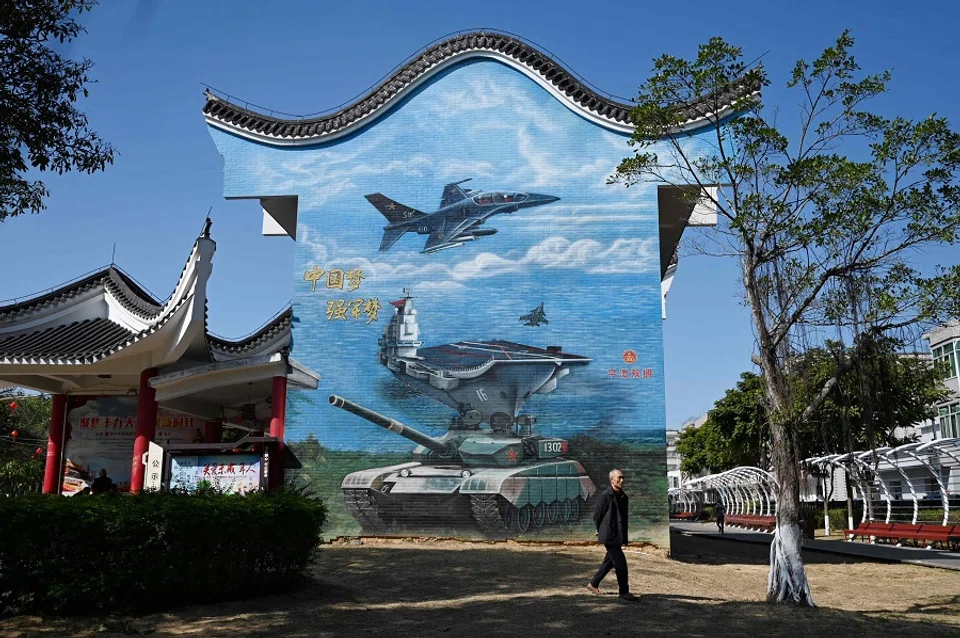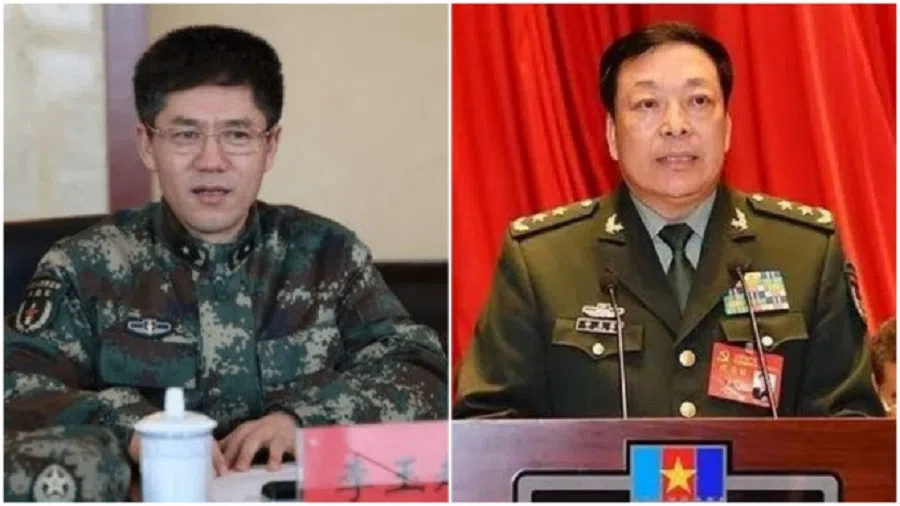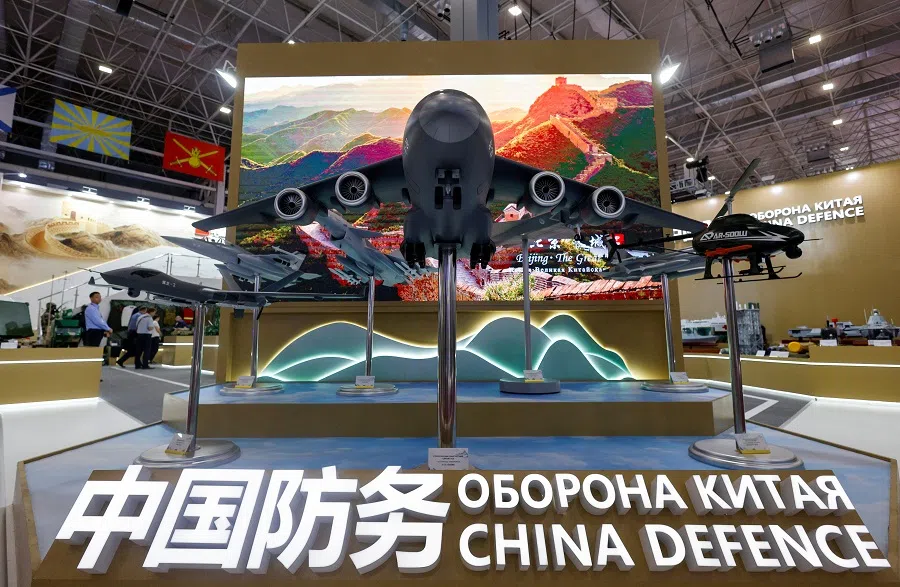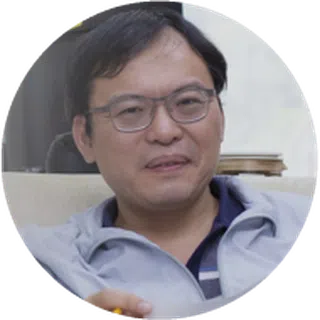Wave of military purges in PLA unlikely to be over
The recent purge of top men from China's military may go on for longer yet, says Taiwanese academic Wen-hsuan Tsai. Whether it is to rein in the military top brass or to root out elements of corruption, the continued purges show that President Xi Jinping's grip on power continues to be strong.

Early in February 2024, a bulletin was published on the official website of China's National People's Congress, announcing that nine senior commanders of the People's Liberation Army (PLA) had been dismissed at the end of 2023.
The nine included three generals, four lieutenant-generals, and two major-generals. The bulletin stated that they were all suspected of "serious violations of discipline and law". Since August last year, Li Yuchao and Xu Zhongbo, respectively the commander and political commissar of the PLA Rocket Force, as well as Defence Minister Li Shangfu, have resigned.
In other words, as many as 12 senior military commanders lost their jobs in 2023. It has also been rumoured that State Councilor Wei Fenghe, a former defence minister, is under investigation, but there has been no official confirmation of that. These unusual events seem to indicate a large-scale purge of the Chinese military's top brass.
One answer may be that Xi is infected by Stalinist thinking and is unleashing a reign of terror on the military...
Technocrats and rocket experts under the spotlight
Almost all of these disgraced officers have a background in the high-tech sectors of the PLA. Most of them have held high-ranking positions in the Rocket Force, the Equipment Development Department of the Central Military Commission, the PLA Navy or the PLA Air Force. For example, Li Shangfu had been commander of the Xichang Satellite Launch Center and head of the Equipment Development Department before he was appointed a state councilor and the defence minister in March 2023.
In addition to these military commanders, some senior managers of military-industrial enterprises are also under investigation. Among them, Wu Yansheng, chairman of China Aerospace Science and Technology Corporation; Liu Shiquan, chairman of the board of the China North Industries Group Corporation; and Wang Changqing, deputy general manager of China Aerospace Science and Industry Corporation, lost their seats on the Chinese People's Political Consultative Conference in December 2023.
Wang Xiaojun, director of the China Academy of Launch Vehicle Technology (CALT), suffered the same fate on 29 January 2024. These dismissals are all signs that high-ranking officials in the scientific research and military-industrial system are coming under investigation by the Discipline Inspection Commission.
Keeping the military-industrial system in check
There are two possible explanations for the above upheavals in the military. First, that the purge is Xi Jinping's way of intimidating officials in the military-industrial system. Almost all of these commanders and officials have been promoted since Xi Jinping came to power, so they are unlikely to have had any ties of loyalty to his predecessors, Hu Jintao or Jiang Zemin.

If that is the case, why should Xi find it necessary to use a "political campaign" approach to get rid of them? One answer may be that Xi is infected by Stalinist thinking and is unleashing a reign of terror on the military, similar to the purge instigated by Stalin in 1940-41. Xi may fear that commanders associated with high-tech sections of the PLA have been exposed to "Western" thinking, and are therefore not politically trustworthy.
... the root cause of corruption within the CCP regime is institutional.
The second explanation is associated with the opportunities for corruption available to leaders in these high-tech military sectors which require huge amounts of funds. Corruption among military commanders was rife during Hu Jintao's tenure - notable cases being those of Gu Junshan, the deputy director of the General Logistics Department, and Xu Caihou, the vice-chairman of the Central Military Commission.
Since Xi Jinping came to power, worsening relations with the US have made it more difficult for the Chinese to procure high-tech core technologies from overseas, so the regime has been forced to increase its investment in military R&D at home. Evidence of corrupt relationships between the generals and the arms industry may be one reason why Xi Jinping launched this purge. Not only that, this wave of military purges is unlikely to be over.
It is obvious that the Chinese Communist Party (CCP) lacks an independent supervision system, and that the military is pretty much a closed system. Corruption among the generals may have been going on for a long time. One unspoken rule within the CCP is that officials are subject to "lifelong accountability", meaning that no matter how long ago a bribe was accepted, the corrupt individual will not avoid punishment.
This rule is one reason why many generals want to take early retirement. But the root cause of corruption within the CCP regime is institutional. In a system where the party controls everything, there can never be independent judicial oversight. No matter how many generals are investigated and punished, there will always be more corrupt officials in the future.
The CCP has always refused to give up the option of using force to invade Taiwan, but it is questionable whether the PLA would be capable of achieving a rapid victory over Taiwan's military.
Impact on China's defence capabilities
This purge of the top brass has also caused the outside world to question the combat capability of China's high-tech military units. If the generals are corrupt, the quality of the equipment they procure is likely to be sub-standard. It has even been rumoured that some of the PLA's missiles were filled with water instead of fuel - if this was the case, it is likely that funds for purchasing the fuel went into the pockets of corrupt officials.

The CCP has always refused to give up the option of using force to invade Taiwan, but it is questionable whether the PLA would be capable of achieving a rapid victory over Taiwan's military. Such doubts may have the effect of further boosting the morale of pro-independence forces on the island, and encourage them to accelerate the independence process.
We should also ask whether the purge indicates that Xi Jinping's power is weakening. However, it can hardly be seen as evidence of the emergence of anti-Xi forces within the PLA. Most of the purged generals were promoted to important positions by Xi Jinping himself, so Xi has the power to promote them and even more power to punish them. Instead, it indicates that, like Stalin in 1940-41, Xi's power is entrenched, giving him leeway to carry out his "reign of terror".





